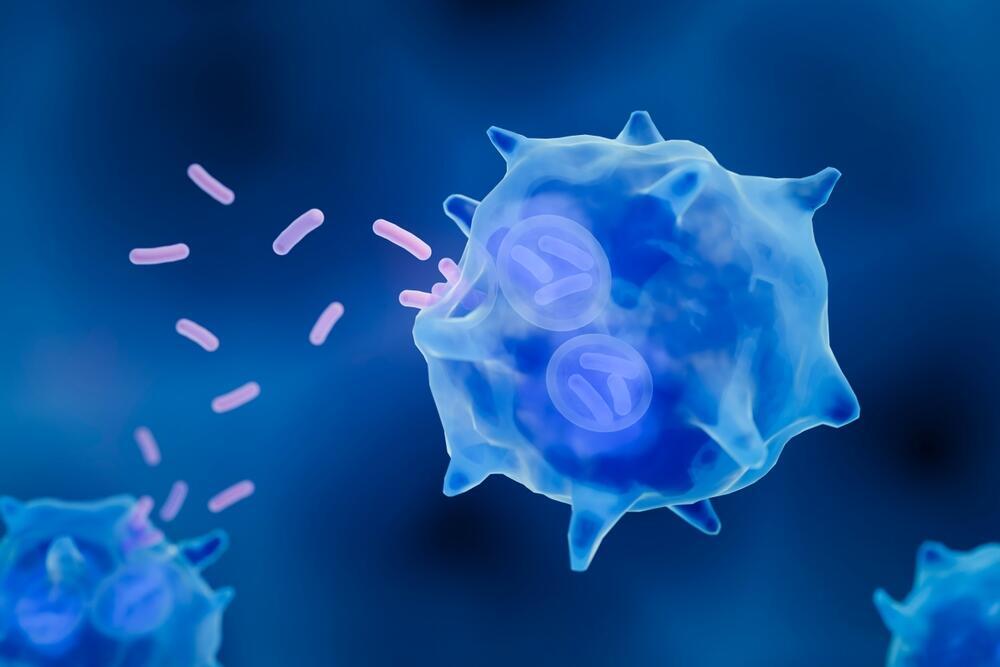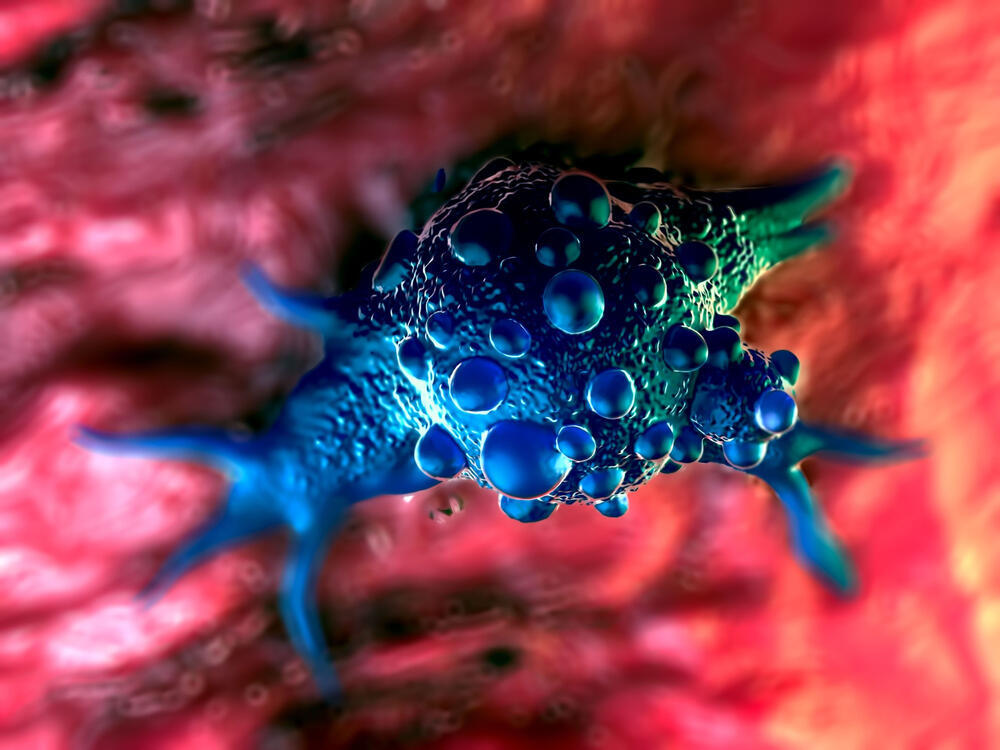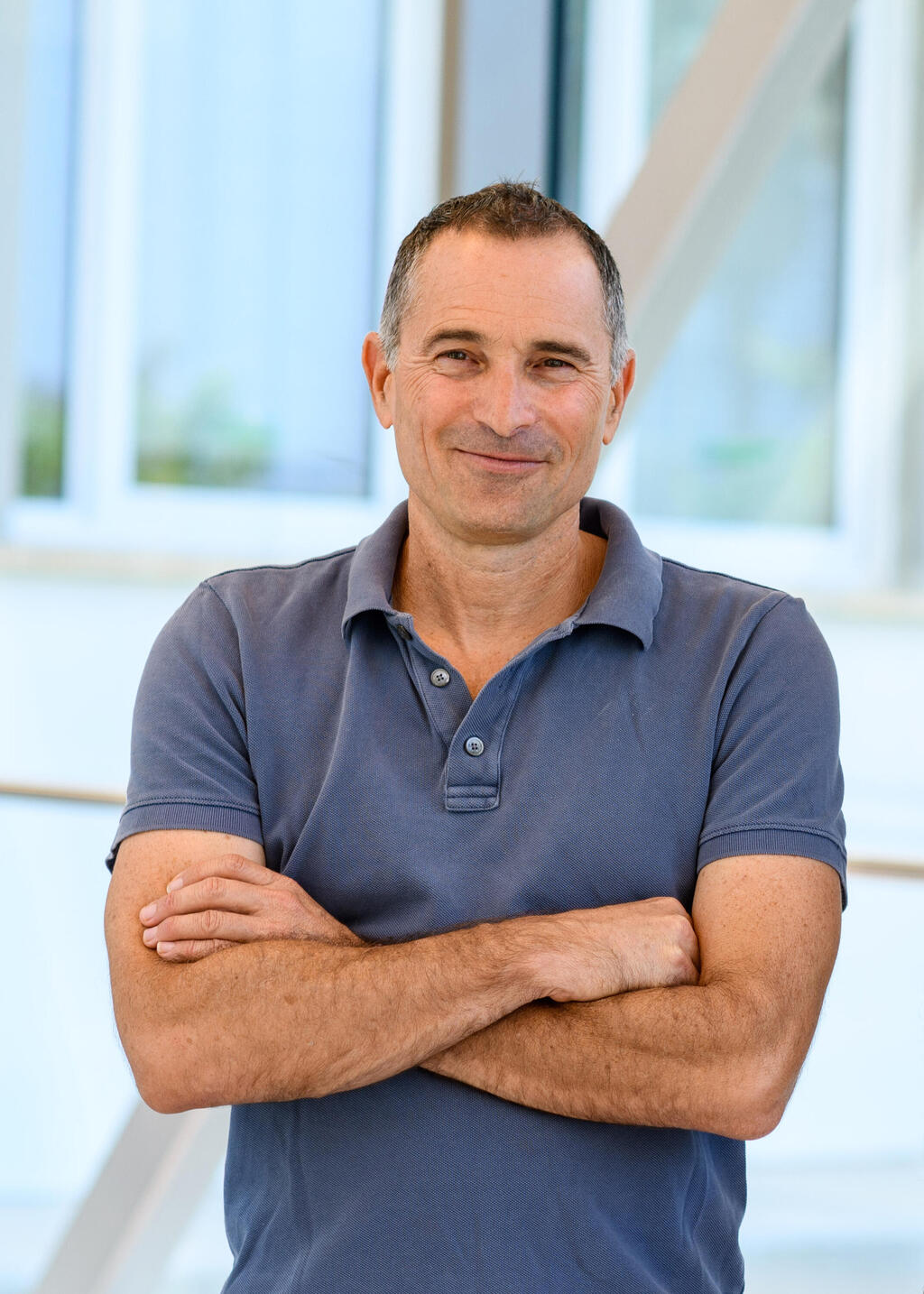Getting your Trinity Audio player ready...
Researchers at the Weizmann Institute of Science have identified a key gene that acts as a "master switch" in immune cells known as macrophages, enabling tumors to hijack the immune system and promoting cancer growth.
Their discovery, published Wednesday in the journal Cancer Cell, could pave the way for a new class of cancer treatments, particularly for bladder cancer, one of the most common but therapeutically underserved forms of the disease.
4 View gallery


(l-r) Dr. Ken Xie, Dr. Fadi Sheban and Dr. Truong San Phan
(Photo: Weizmann Institute of Science)
“To grow, cancer tumors must hijack the immune system for their needs,” said Prof. Ido Amit of Weizmann’s Systems Immunology Department, who led the study. "By doing that, the tumors protect themselves from the macrophages’ ‘nasty’ side, and also turn on macrophage functions that help them grow, such as suppressing the activity of other immune cell types and encouraging blood vessel growth for supplying oxygen to the tumor."
Macrophages, which Amit described as a “‘Swiss knife’ of the immune system,” can switch between roles, either attacking tumors or enabling their survival. Most solid tumors exploit this flexibility to turn macrophages into cancer-supporting agents. Recent studies have linked the activation mode of tumor macrophages to patient outcomes, spurring global efforts to reprogram them back into their anticancer role.
“Those efforts failed because they separated macrophages into two very general categories – protumor and antitumor,” Amit said. “Today we know that this categorization misses much of the complexity of macrophage function.”
Seeking a more nuanced understanding, the Weizmann team—led by Dr. Fadi Sheban—began by analyzing macrophage datasets from human tumor samples. They identified 120 genes suspected of driving the protumor behavior of macrophages.
To pinpoint the most critical genes, the researchers used CRISPR-Cas9 gene editing combined with advanced single-cell sequencing. They created a platform to systematically delete each of the 120 genes one by one in individual macrophage cells, sequencing over 100,000 edited cells in total.
“Using our newly developed platform, we were able to study the effects of all 120 suspected genes on the function of individual macrophage cells,” said Sheban.
But the data was complex and initially confusing. “It was a complete mess. At first, we couldn’t tell which genes were the most important ones and which macrophage activity they controlled,” he recalled.
To organize the data, the team used a deep learning tool called MrVI, developed by Prof. Nir Yosef of the same department. MrVI created a functional map of gene activity, showing how each regulatory switch influenced macrophage behavior and how those effects related to one another.
"Using MrVI, we were able to understand which gene deletions changed the functions of the macrophages in a way that made them fight the tumor,” said Sheban.
One gene stood out: Zeb2. The team found that Zeb2 acts as a global regulator, turning on all protumor functions and shutting down all antitumor ones. “We understood that a macrophage with a Zeb2 activates all the protumor functions and deactivates all the antitumor programs, and that silencing this gene achieves the exact opposite,” added Sheban. “In other words, we found the master switch for reprogramming macrophages so that they will fight cancer.”
Get the Ynetnews app on your smartphone: Google Play: https://bit.ly/4eJ37pE | Apple App Store: https://bit.ly/3ZL7iNv
Further analysis revealed how Zeb2 operates. “Zeb2 opens all the protumor genes in the macrophages and closes all the antitumor genes. By removing it, we can obtain the opposite effect,” he added.
Lab experiments and mouse models confirmed the findings. Silencing Zeb2 reprogrammed macrophages into cancer fighters. “We also did another analysis of data from human patients and found that patients with a high expression of Zeb2 are at a much higher risk of having more aggressive cancer,” Sheban noted.
To translate the discovery into a therapy, the researchers partnered with Prof. Marcin Kortylewski of the City of Hope National Medical Center in California. Kortylewski developed a unique DNA molecule designed to be ingested by macrophages. “We used this molecule as bait and connected it to a small silencing RNA molecule. Once swallowed by the macrophage, the RNA molecule silences the Zeb2 gene specifically,” said Sheban.
The therapy was tested in mice with bladder tumors. Researchers injected the molecule into the tumor area and observed that it reprogrammed the macrophages to attack the cancer, causing the tumors to shrink significantly.
“Now the goal is to develop this approach into a novel cancer treatment for humans,” said Amit. “Our study has also demonstrated how advanced technologies can provide an in-depth, high-resolution understanding of the way various immune system players function in different diseases, and how this understanding has the potential to become the foundation of new therapies for patients.”
Sheban led the research together with Dr. Truong San Phan, Dr. Ken Xie and Dr. Florian Ingelfinger of Weizmann’s Systems Immunology Department. The team also included Dr. Chamutal Gur, Dr. Yuval Shapir Itai, Dr. Roberto Avellino, Dr. Paulina Chalan, Dr. Kiara Freitag, Dr. Ido Yofe, Kfir Mazuz, Dr. Rony Dahan, Prof. Nir Yosef and Dr. Assaf Weiner of Weizmann's Systems Immunology Department; Dr. Ronnie Blecher-Gonen of the Nancy and Stephen Grand Israel National Center for Personalized Medicine; Dr. Chunsong Yu and Prof. Marcin Kortylewski of the Beckman Research Institute of the City of Hope National Medical Center; Dr. Vladimir Yutkin of Hadassah Medical Center, Jerusalem; Pierre Boyeau and Dr. Can Ergen-Behr of the University of California, Berkeley; Justin Hong of Columbia University, New York; and Dr. Yuxiao Liu and Dr. Kangming Chen of the Nanjing GenScript Biotech Co., Nanjing, Jiangsu, China.
Prof. Ido Amit's research is supported by the Moross Integrated Cancer Center; the Elsie and Marvin Dekelboum Family Foundation; and the Lotte and John Hecht Memorial Foundation.
Prof. Amit is the incumbent of the Eden and Steven Romick Professorial Chair.




